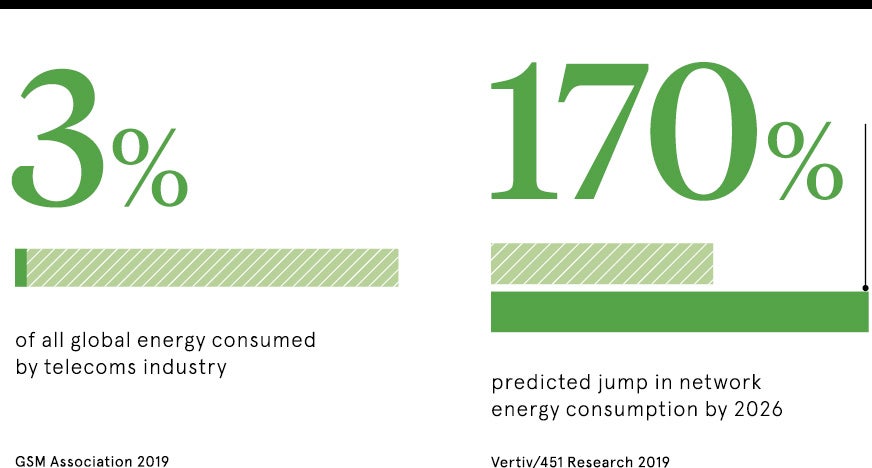Away from the giddy fanfare heralding the advent of fifth-generation wireless technology for digital cellular networks, has there been enough sober contemplation of 5G’s environmental impact?
Consider that by the end of 2025, 5G will attract 2.6 billion subscriptions, generating 45 per cent of the world’s total mobile traffic data, according to the Ericsson Mobility Report 2019, published in November. By connecting with up to 65 per cent of the globe’s population in just a handful of years, 5G is on course to become the fastest-developing mobile communication technology ever rolled out.
However, in these times of heightened climate awareness, such a speedy achievement may not be cause for celebration. Indeed, what would teenage eco-activist Greta Thunberg, born in Stockholm, the headquarters of telecommunications giant Ericsson, coincidentally, think about 5G’s environmental impact?
The latest figures from the GSM Association show the telecoms industry currently consumes around 3 per cent of global energy. But as Per Lindberg, chief executive at Ranplan Wireless, points out: “The onset and rollout of 5G globally could result in a potential increase in data traffic of up to a thousand times. Additionally, the infrastructure to cope with the 5G era could arguably consume up to three times as much energy.”

Indeed, a report, published last spring by Vertiv and technology analyst firm 451 Research, estimates that network energy consumption could jump 170 per cent by 2026, with 90 per cent of operators expressing their concern. The study projects that in 2030 information technology will consume one fifth of all global electricity. “As demand for connectivity continues to skyrocket so too does the energy consumption of telco operators,” warns Jon Abbott, technologies director for global strategic telecom clients at Vertiv.
5G a costly upgrade?
Clearly, as 5G networks reach new markets, and existing network traffic increases, growth management is critical to achieving a better energy performance. Some claim 5G’s environmental impact and, at first glance, lack of ethical appeal could damage its mass business-to-consumer adoption.
“Unfortunately, consumers will need to replace their current 4G phone with the 5G-compatible one, which means ditching a perfectly working phone,” says Matthew Moreton, managing director at mobile phone comparison site Compare and Recycle. “Fears over e-waste issues among eco-conscious consumers most likely will slow down the adoption of 5G if device buyback programmes are not enforced and there’s no actionable plan for the decommissioned devices beyond recycling centres.”
Many experts, though, are hopeful that once the infrastructure is in place, 5G energy efficiency will significantly improve. Mark Skilton, professor of practice in information systems and management, at Warwick Business School, says: “Technology can enable 5G to own the green revolution because of the nature of the increased speed in data sensors that will create an effective real-time system.
“We will see radical new business models emerge for how everything from streetlights, home heating to energy and water consumption is monitored and managed. These innovative models will move away from the slow process control and poor visibility, and often no tracking of consumption, that we currently have.”
The onset and rollout of 5G globally could result in a potential increase in data traffic of up to a thousand times
Skilton points out that research from Enzen Global, a smart energy consultancy, has shown smart sensor networks can level up numerous green efficiencies, from detecting water leaks to monitoring pollution levels. “5G will be able to turn off inactive systems or optimise water consumption to provide a better balance of demand and supply,” he says. “Today this simply is not possible without the investment and specialised networks that make widescale use of the internet of things (IoT) affordable.”
Owning the green revolution
Paul Marshall, chief technology officer and founder of IoT specialist Eseye, goes as far as to predict 5G will be the first carbon-neutral network. “The energy-saving potential of 5G connectivity, coupled with IoT technology, is huge,” he says. “Better-connected devices, armed with data provided to them every second, allows for autonomous operation.
“It is this autonomy that will usher in a reduction in energy usage as more and more devices will be able to shut down when not in use to conserve energy, then powering up again in time for when they are required, without any human input.”
Should network providers be responsible for 5G’s environmental impact? Kirsty McKell, associate director of Carbon Intelligence, certainly thinks so. “Pleasingly, we see a rise in commitment from the UK’s largest telecommunications firms; clients Vodafone and BT have committed to ambitious targets to procure 100 per cent renewable energy, as part of global initiative RE100,” she says.
Christopher Nurko, chief innovation officer at Interbrand Group, is equally optimistic that 5G’s environmental impact will be a force for good, and could even halt and reverse climate change, eventually. He says: “The rollout of 5G globally will provide us with the ability to diagnose, predict, optimise and measure the impact of every decision through data.
“As it becomes more widespread, we will be able to deploy this to protect the environment, guard resources and promote long-term sustainable activities for positive economic and social outcomes. The scale of this has potential to be massive. BT, for example, has calculated deployment of 5G could reduce CO2 emissions by 1.5 gigatonnes by 2030, more than a third of the European Union’s emissions in 2012.”
This progressive attitude is echoed by Richard Baker, chief executive of GeoSpock, who adds: “Historically humankind has attempted to bend the world to suit our needs, but IoT in combination with 5G gives us the capability to fully grasp our environmental impact and react accordingly. For the first time, we’ll have the evidence to make the best possible decisions.”
Perhaps Greta and her followers should be rejoicing about the rollout of 5G, after all.




